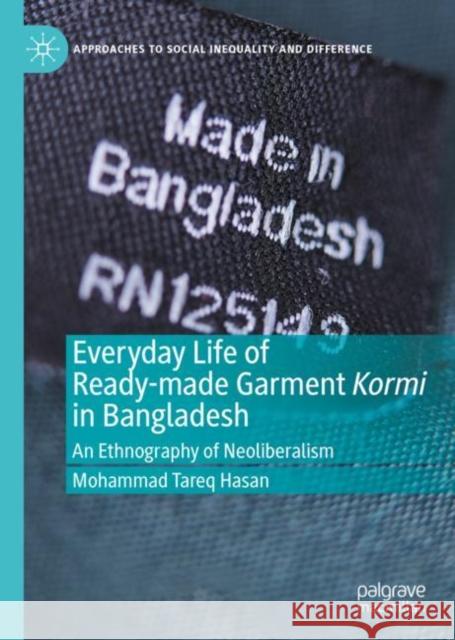Everyday Life of Ready-Made Garment Kormi in Bangladesh: An Ethnography of Neoliberalism » książka
topmenu
Everyday Life of Ready-Made Garment Kormi in Bangladesh: An Ethnography of Neoliberalism
ISBN-13: 9783030999018 / Angielski / Twarda / 2022 / 329 str.
Everyday Life of Ready-Made Garment Kormi in Bangladesh: An Ethnography of Neoliberalism
ISBN-13: 9783030999018 / Angielski / Twarda / 2022 / 329 str.
cena 563,56
(netto: 536,72 VAT: 5%)
Najniższa cena z 30 dni: 539,74
(netto: 536,72 VAT: 5%)
Najniższa cena z 30 dni: 539,74
Termin realizacji zamówienia:
ok. 22 dni roboczych
Bez gwarancji dostawy przed świętami
ok. 22 dni roboczych
Bez gwarancji dostawy przed świętami
Darmowa dostawa!
Kategorie:
Kategorie BISAC:
Wydawca:
Springer Nature Switzerland AG
Seria wydawnicza:
Język:
Angielski
ISBN-13:
9783030999018
Rok wydania:
2022
Ilość stron:
329
Wymiary:
21.0 x 14.8
Oprawa:
Twarda
Dodatkowe informacje:
Wydanie ilustrowane











